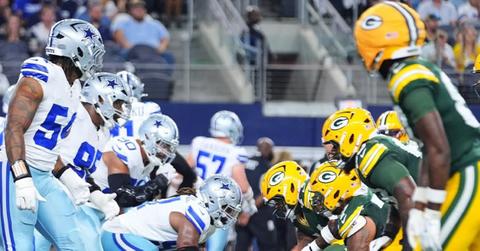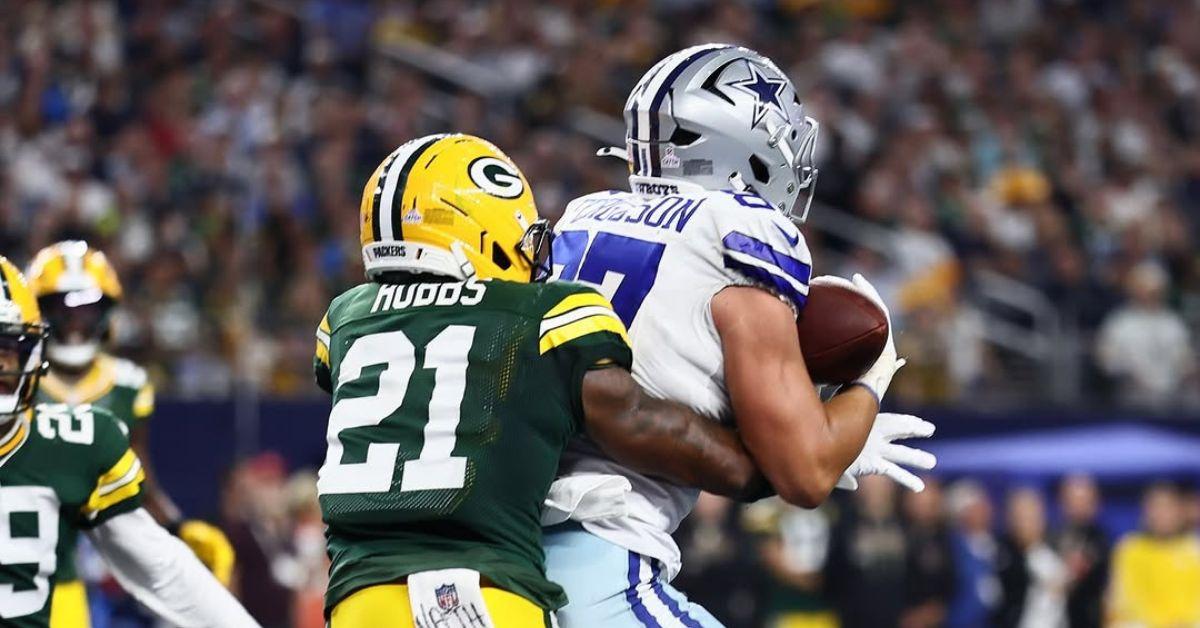Why Did the Cowboys Game End in a Tie? Inside the 40-40 Packers Standoff
This is the first Cowboys tie since the 1969 season.
Published Sept. 29 2025, 10:08 a.m. ET
The Dallas Cowboys are no strangers to dramatic football, but few outcomes leave fans scratching their heads like a game that ends without a winner. Football thrives on rivalries, momentum shifts, and big finishes. But every so often, the scoreboard doesn't budge as time runs out.
That’s exactly what happened when the Cowboys and Green Bay Packers clashed in a game that ended in a rare 40-40 tie. Many viewers were left asking the same question: Why did the Cowboys game end in a tie, and how could neither team claim the win after such an explosive showdown? It all comes down to NFL rules.
Why did the Cowboys game end in a tie?
Under current NFL overtime rules, both teams are guaranteed one possession unless the first results in a touchdown or defensive score. If neither side pulls ahead after the initial drives, play continues in sudden death, but only until the 10-minute overtime clock expires.
That’s what happened in the Cowboys-Packers matchup, with both offenses moving the ball but failing to break the deadlock.
The game had fireworks throughout, with Dak Prescott and Jordan Love trading touchdowns in a back-and-forth that showcased each team’s offensive firepower. By the time regulation ended, the score was knotted at 40 apiece. Overtime gave both teams chances, but stalled drives, defensive stops, and clock management meant neither could land the final blow.
NFL ties are rare, but not unheard of. Since overtime was shortened from 15 to 10 minutes in 2017, the chances of a tie have crept upward. However, according to the Dallas Cowboys, this is the first Cowboys tie since 1969.
Fox Sports reports that the Cowboys-Packers matchup was the second-highest scoring tie in NFL history, trailing only a 43-43 game between the Raiders and Patriots in 1964.
What does the tie means for the Cowboys and the Packers?
For Dallas, a tie still goes on the record and can shape playoff seeding down the stretch. Unlike college football, there’s no system to guarantee a winner. Instead, the NFL prioritizes player safety, preferring to avoid multiple overtimes that risk injury. The tradeoff is the occasional anticlimactic ending like this one.
The Packers, meanwhile, left the field in the same boat. Both teams displayed grit, but neither managed to overcome the condensed overtime format. It’s a reminder that even in one of the most competitive leagues in sports, rules and structure play just as much of a role as talent on the field.
Fans will be talking about this tie for years.
The Cowboys-Packers tie is sure to fuel debates among fans, analysts, and even rule-makers about whether overtime should be extended or reimagined. Until then, these rare outcomes are part of the NFL’s landscape, creating moments that feel equal parts exciting and unsatisfying.
One Reddit user said, "For those of us that hate the Packers AND the Cowboys, today was Christmas. Neither team won. lol." Another was quick to chime in, "But also neither team lost!"
On the Instagram post announcing the score on the NFL page, comments mostly reflected people's unhappiness about the tie. "Ties in the NFL is the stupidest thing in sports." Another wrote, "Both teams nearly snatched defeat from the jaws of victory until they both decided to not win."
The 40-40 result may not have delivered a clear winner, but it added another chapter to the Cowboys-Packers rivalry. The thing is, football is a physically demanding sport and can be violent. You can't just play with unlimited overtime, especially at this professional level, where careers and livelihoods are on the line. Whether loved or hated, ties remain one of football’s quirks, and it's proof that not every epic battle ends with a victor.

